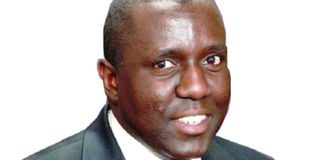Unpredictable weather patterns promise more turmoil in economy

Mr Ssemogerere is an Attorney-at-Law and an Advocate
What you need to know:
- Stephen Sembuya, a scion of the old Magulu clan in Nkokonjeru (Bukunja) is in the market with what appears to be very good chocolate. This is all good news for the economy.
The unpredictable weather in Uganda is no longer a new story. In 2016, most of the country felt the strain from a prolonged dry spell that scorched most crops in the second half of the year. The nation’s top weatherman Festus Luboyera in December announced the arrival of rain. The lake region received its first showers in months on December 30/31 before rains normalised.
These particular rains are now slated to cut off abruptly this month. Then what would be the problem? Many counties in West Nile, the middle north and northeast are yet to receive any appreciable rain. In April, the people of Teso were praying for rain and fundraising to alleviate the drastic famine in the region. The general public got a glimpse of hunger in the Toroma County by-election. The counties in Masaka, Kalungu, and Bukomansimbi were reported to be in the same situation.
The lake shore counties had rain while next door people were waiting for food handouts. In the middle of the lake, food relief arrived in May. Kalangala District has been hit by a different problem. Skyrocketing food prices because most of the district is now covered by oil palm, a cash crop, a monocrop grown without intercropping. The islands are also in a big wave of enforcement of a ban on illegal fishing that has left fishing stocks depleted.
In Arua, strained by deforestation, some counties are yet to receive any of the rains announced by Mr Luboyera last year. It seems cattle country, Mbarara, is in a dry spell a situation unheard of in years. At the onset of the rains, the National Meteorological Authority warned that the rains would be irregular but a little bit more detail would have helped given this very unpredictable business. There must be rain patterns to isolate the high risk area. Kayunga-Bugerere to the south east of Lake Kyoga received very good rains and it seemed for a while that a second crop was possible. Farmers are distraught here because the rains cut off scorching cereals that were in early stages of fruiting.
The conversation of rains has attracted more attention because Uganda with its rickety public finances can barely afford food relief. Decades of neglect of the agriculture sector have wiped out government food security infrastructure. Famine relief and less predictable rainfall mean urgent changes must be made to introduce a drought crop alongside regular food crops. The isolated drought crop such as fast-growing cereals, including sorghum and legumes like cowpeas, would be sold to government and stored at regional centres for distribution. Intervention by government in the maize or rice markets is too costly. The current spike in food inflation is partly linked to this.
Early warning infrastructure in areas prone to high temperatures like Gulu, where temperatures regularly hit upwards of 300C would work like heat advisories used in developed countries to trigger urgent water conservation. Water conservation in this area, which has the biggest agriculture potential, is key to utilising this fertile land through irrigation. Everyone watching the President’s drip irrigation efforts know it’s a joke, the pollution from plastic bottles let alone the cost, means this is impractical. Water conservation and management are far more expensive. Much water is lost due to failure to segregate water for domestic use from water for industrial or agricultural use. Families trekking seven miles to collect water cannot engage in the luxury of “dripping” it in their gardens.
It’s not all negative news. The pickup in agricultural activity in Bunyoro and the greater midwest, is positive. Talking to some of my peers and old schoolmates, the news is interesting. Many farmers in this area want to experiment with cocoa, a higher yielding and 25 per cent more valuable crop than coffee.
Stephen Sembuya, a scion of the old Magulu clan in Nkokonjeru (Bukunja) is in the market with what appears to be very good chocolate. This is all good news for the economy.
Mr Ssemogerere is an Attorney-at-Law
and an Advocate. [email protected]


